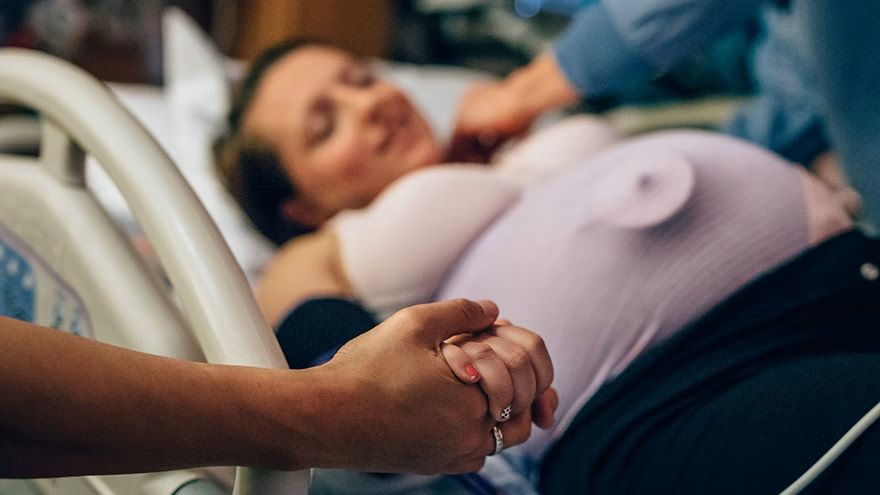Because early labor can take a long time -- typically lasting between eight and 12 hours, says the American Pregnancy Association -- it can be an opportunity to carefully prepare emotionally and physically for what's ahead. Use this time to relax as much as possible while you can.
7 Steps To Handle Early Labor

1. Contact Your Doctor İf You're Carrying Multiples, Have Had A Complicated Pregnancy Or Have A History Of Complicated Births
Check in with the doctor if you're unsure when to head to the hospital; in early labor, your contractions will probably be so far apart that you can stay at home for now.
2. Rest As Much As Possible
Before labor pains make rest difficult, take a nap or try to go back to sleep.
3. Contact Anyone Who Needs To Know The Baby's Arrival İs İmminent
Call the caretakers for older children or pets to alert them that you'll soon be headed to the hospital, and send updates to any family member or friends you want to meet you at the hospital when labor progresses.
4. Eat Foods That Will Fuel You İn The Coming Hours
Choose light, nutritious foods, such as fruit and crackers, and drink plenty of fluids. Don't force yourself to eat if you feel nauseated.
5. Monitor And Track Your Contractions
At this stage, they may feel like cramping or pain in your pelvis or lower back, the American Pregnancy Association notes, and they may last for just 30 to 45 seconds. Time the length of each contraction and the time between contractions and ask your partner to keep notes.
6. Manage Any Pain You Feel
Not all women will experience discomfort during early labor, reports Mayo Clinic, but those who do might find relief in warm baths, heating pads or ice packs. Practice the breathing techniques you learned in childbirth class. Try to stay calm and relaxed.
7. Make Last-minute Plans To Keep Your Home And Family Running While You're İn The Hospital
Write out a list of instructions for your child's caretaker, ask your partner to straighten up around the house, and check that your hospital bag contains important odds and ends, such as your phone charger and baby book. Focusing on these tasks might help distract you until it's time to leave home.
Tips and Warnings
- Because early labor tends to only include mild discomfort, it may be hard to distinguish from false labor. Until your water breaks, it's difficult to tell whether you're truly in labor at first without a cervical exam, says Sutter Health.
If you're truly in labor, you should notice that your contractions get stronger and more regular as time goes by, and walking or lying down won't make them go away.
- Timing contractions helps you pinpoint the end of early labor and the beginning of active labor. According to Sutter Health, many doctors advise that you head to the hospital or birthing center once your contractions last for at least 60 seconds apiece and are spaced approximately five minutes apart.
- Contact your doctor immediately if you experience abnormally intense pain or any other worrisome symptoms.
Save for later
Found this helpful?
Pin this article to your Pinterest board and come back to it whenever you need a reminder.
Save to Pinterest


